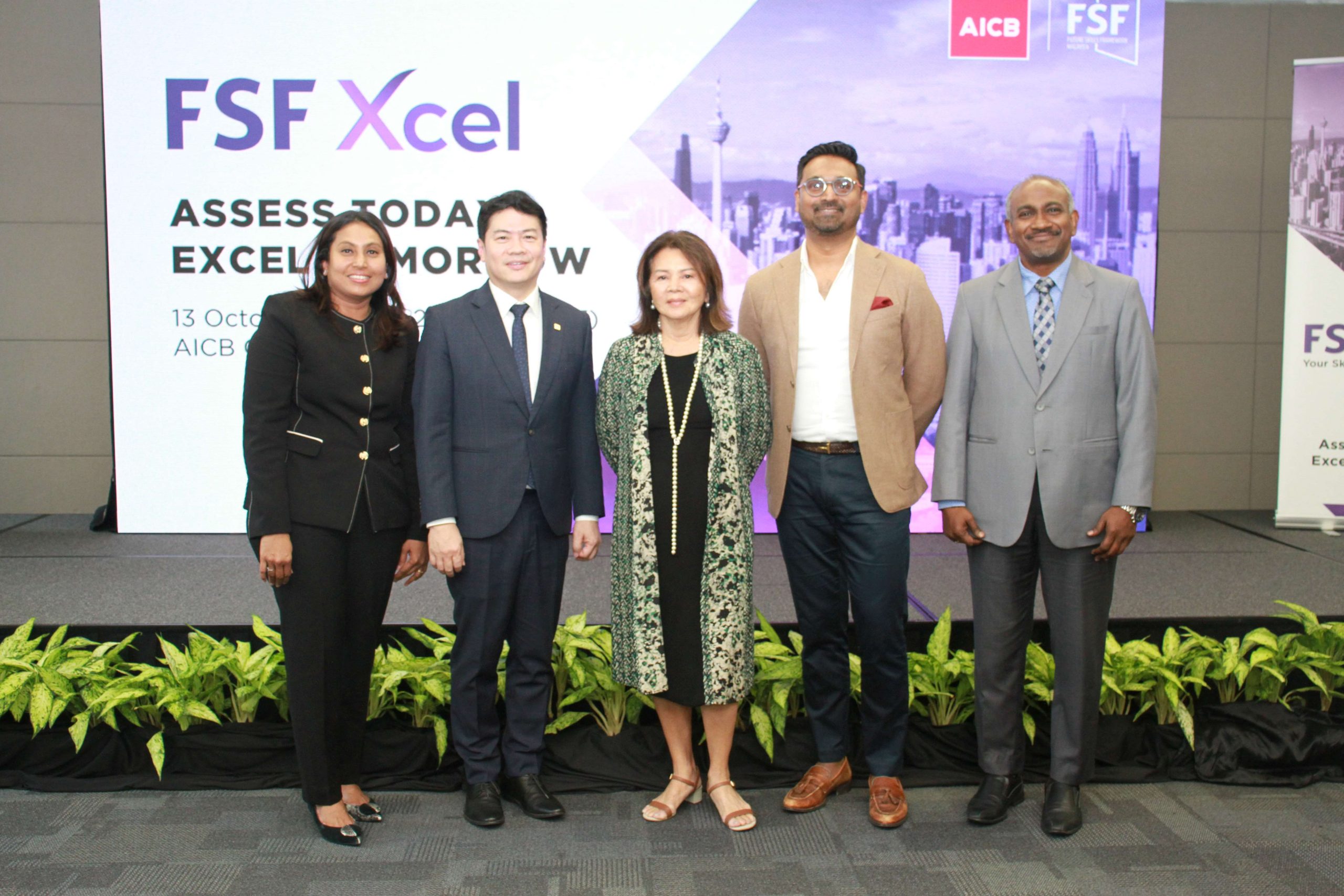The Asian Institute of Chartered Bankers (AICB) has launched FSF Xcel, Malaysia’s first industry-wide digital skills assessment platform for the financial sector. This initiative benchmarks workforce capabilities and accelerates upskilling across the financial industry, supporting Malaysia’s transition toward a more adaptive, sustainable, and future-ready financial ecosystem.
Building on the success of the Future Skills Framework (FSF) introduced in 2024, FSF Xcel operationalises the framework through structured, industry-validated assessments. These assessments enable financial institutions to identify skill gaps, map learning and career pathways, and future-proof talent strategies. The platform covers 159 job roles and 157 critical skills, addressing both technical capabilities and behavioural competencies. Developed in collaboration with Accendo Technologies — a Malaysian AI-powered talent intelligence company and the official delivery partner of FSF Xcel — the platform integrates global best practices with local expertise to strengthen Malaysia’s financial talent pipeline.
The financial sector, which contributed an estimated 6.7% to Malaysia’s GDP in 2024 and employs nearly 167,000 professionals, remains a cornerstone of national economic growth and resilience. In alignment with Bank Negara Malaysia’s Financial Sector Blueprint 2022–2026, FSF Xcel accelerates the industry’s transition toward a digitally fluent, innovation-driven workforce — one empowered by data and anchored in continuous learning. The platform provides financial institutions with real-time analytics and a common competency language to guide workforce planning, benchmark capabilities, and strengthen professional development across the sector, advancing Malaysia’s ambition to strategically build talent readiness for a digital economy.
Edward Ling, Chief Executive of AICB, said, “FSF Xcel is more than a skills assessment platform — it is a catalyst for transformation. By equipping both employees and employers with data-driven insights to identify, measure, and strengthen their capabilities, it fosters a culture of continuous learning and professional excellence. Developed for the industry, with the industry, FSF Xcel reflects our shared commitment to building a resilient, competitive, and future-ready financial workforce.”
YBhg. Datuk Dr Yvonne Chia, FCB, Chairperson of the MyMAHIR Future Skills Talent Council – Financial Sector and AICB Council Member, added, “In a world where nearly 40% of today’s skill sets are expected to evolve or become obsolete by 2030, FSF Xcel empowers financial institutions to respond with agility and foresight. It reinforces Malaysia’s position as a regional hub for skilled, versatile, and innovative financial professionals.”
Sharma Lachu, Founder and CEO of Accendo Technologies, said, “FSF Xcel proves that vision can be translated into action. We are confident that Accendo’s partnership with AICB will drive the impetus for an industry-wide Digital Talent Passport, allowing individuals and organisations to thrive in this ever-changing world.”
The initiative is underpinned by AICB’s 2025 Workforce Baseline Study, which recorded a 68% response rate from 99 financial institutions across the sector. The findings revealed strong industry demand, with 96% of respondents expressing interest in adopting a standard digital assessment platform to close skill gaps in line with the FSF. The study also found that approximately 40,000 employees are expected to see their roles evolve due to automation, underscoring the urgency for targeted upskilling and reskilling across Malaysia’s financial workforce.
These findings align with global trends highlighted in the World Economic Forum’s Future of Jobs Report 2025, which projects that 39% of current skill sets will become outdated by 2030 and identifies skill gaps as the biggest barrier to business transformation in Malaysia.
FSF Xcel will be rolled out progressively across financial institutions from Q4 2025, with AICB working closely with Bank Negara Malaysia (BNM), Accendo Technologies, industry associations, and learning partners to support adoption and implementation across the financial sector.

